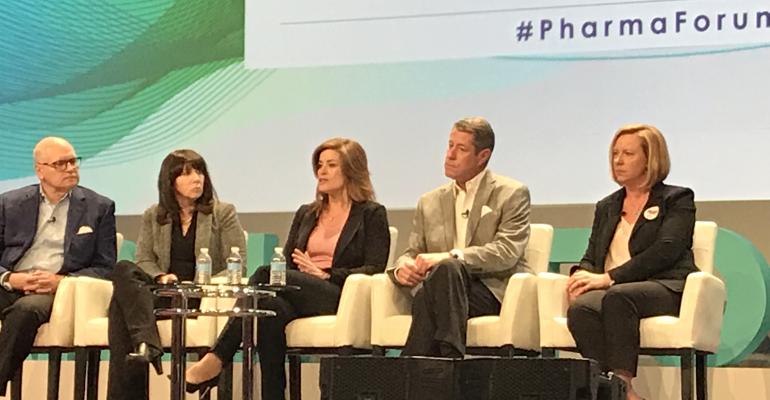For the 16th annual Pharma Forum show set for March 8-11 in New York City, three industry chairpersons will help lead the 750-person event. They are Valli Chapjian, global meetings & events regional director, Americas, for AstraZeneca; Brian P. McArdle, strategic meetings management, global travel & meetings, for Celgene; and Sonal Humane, director of meeting management, research division, for Merck.
MeetingsNet spoke to Humane last month about her specific work challenges and why she looks forward to Pharma Forum each year. Now we chat with Chapjian, who just recently came to AstraZeneca after 15 years at GSK overseeing the logistics and some creative elements for internal meetings, customer meetings, and HCP-facing events. Her new role has an additional wrinkle.
MeetingsNet: Over the next 12 to 18 months, what do you see as the biggest challenges with your division’s events?
Valli Chapjian: Just as I joined AZ we were launching an SMM program, so it’s interesting that I am not coming in to just fill someone else’s shoes—this is a whole new landscape I am helping to create. Across the company, there are various people managing meetings; it’s not really their day job. There are a few dedicated meeting departments for oncology and other areas, but there has never been a coordinated SMM effort. So I am the lead for the Americas in a new meetings and events service called Global Meetings and Events.
GME is an enterprise-wide approach to event management that will bring consistency to sourcing, logistics, budgeting, and planning for HCP-facing events, customer events, and internal events. It will cover all the planning milestones, so it is strategic—it gives us a seat at the table for all our business lines as they plan their activities for the next calendar year. We’re involved in each event’s strategic sourcing—the partnerships between the vendors and the internal stakeholders—and we also have oversight for execution, compliance, the financial process, and reporting.
The biggest driver of this initiative is having the ability to capture and analyze data from all our events. AZ has never had a consistent meetings technology across the business that captures all that data, but we just launched our custom Cvent product in December for the U.S. and U.K. marketing and oncology segments. We are rolling SMM out in waves but those are our biggest markets, so we started there. We will learn from it and improve it and then roll it out across other regions around the world. So the next 12 months are pretty important.
MeetingsNet: What else are you dealing with that planners at other medical firms also face?
Valli Chapjian: As your business changes and your portfolio evolves, it is about streamlining your overall spend and trying to compare it to the industry benchmarks. We all hear, “We need you to do more with less—you still need to get the same number of people out there for the same number of days, but the budget is down a bit from last year.” For any pharma planner, it is about getting all the data you can, having visibility into all your events so you can plan better with your internal teams and your vendors. This brings greater accountability with internal stakeholders, and planners have to manage that firmly but diplomatically.
What’s driving this is that the technology for meeting management has reached a critical point of maturity, both for individual events and the whole portfolio. The data now gives us the insight and the benchmarking ability to hold our teams and our stakeholders accountable for how they spend. It gives planners an opportunity to push back: “Do you really need to have this evening function or some of the other elaborate elements simply because you have always done it that way?” Being able to track all elements of all events gives our planning team a strategic opportunity to manage every meeting better.
MeetingsNet: As part of the content-creation team for the Pharma Forum 2020 conference, what do you see as the strength of the event for attendees to become better at what they do?
Valli Chapjian: I have been to a lot of these, and the important thing for attendees to know is that they are in a safe zone at Pharma Forum. Regardless of the size of your company, the challenges we face as planners are universal. This conference gives us an opportunity to talk to our peers and find solutions from those who might be farther along in a particular area. I have been doing this a long time but I still don’t have all the right answers, so Pharma Forum certainly benefits me.
What I like most is that the interaction doesn’t end at the conference. For instance, I’ve formed an alliance with many peers with whom I communicate long after the show. I can reach out in my peer group simply to run an idea by them, and that speaks volumes about the talent and expertise that is present at Pharma Forum as well as the spirit of transparency it has. Even with the many hoteliers at the event, you can talk out loud about challenges you have in general with them. It feels good to be able to put those issues out there without those folks being directly involved in the situation you’re talking about, and you will get honest feedback in return.






